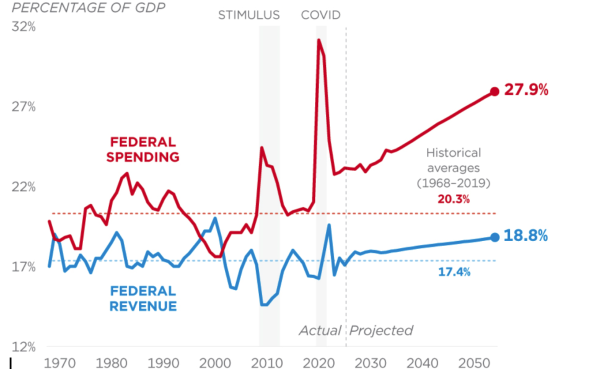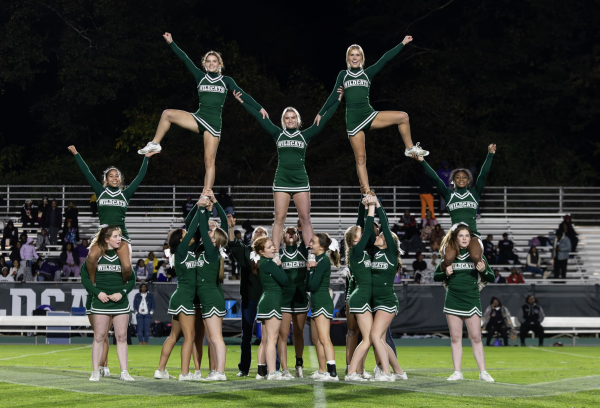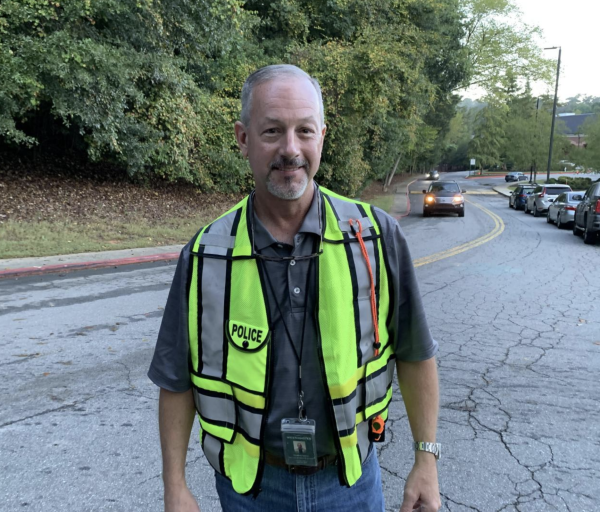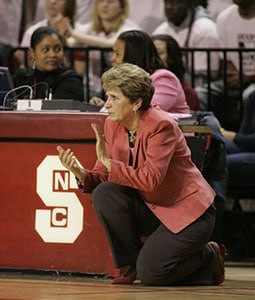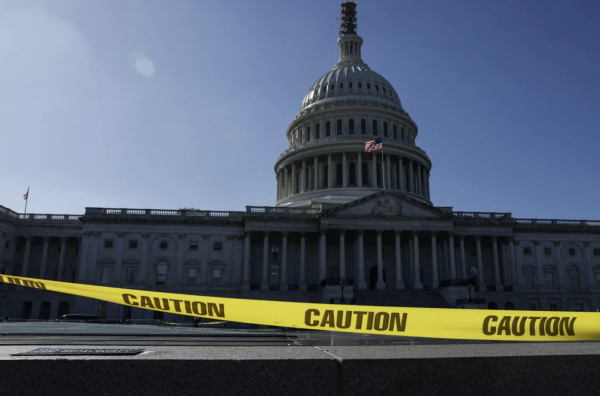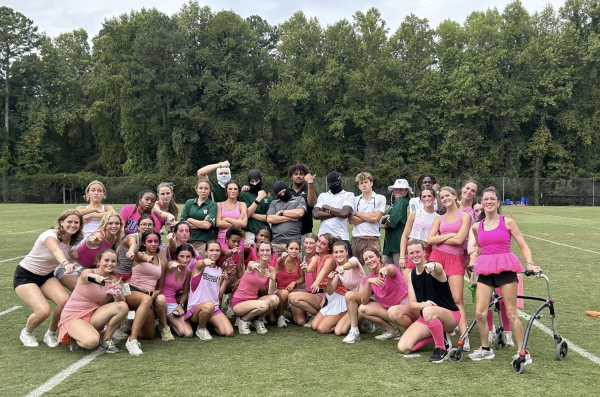College admissions season competitive, successful
The anxiety and uncertainty of the 2016 college admissions season, what many colleges have claimed to be the most competitive year in college admissions to date, has come to a close. As the Class of 2016 celebrates its victory upon completing the college process and prepares to graduate, students younger than them look forward to the next year of admissions.
Every admissions season has its peculiarities, as well as a degree of normality. According to head of college counseling Steve Frappier, this year’s seniors applied to 195 colleges in 33 states, Washington D.C., France, and Singapore, although 76 of those colleges only had one Westminster applicant. More Westminster applications to Emory were submitted this year, and fewer to UNC-Chapel Hill. A record number of Westminster students applied to New York University, UC-Berkeley, and the University of Chicago. Differences this year will not necessarily account for the start of new trends, but students in the Class of 2016 have also continued trends from previous years. Like in the last five years, about one-third of Westminster seniors completed the college process by January, either through Early Decision, Early Action, or athletic recruiting. The average number of colleges a Westminster student applied to remained at six to seven, while the national average is four. Finally, the Class of 2016 has maintained the average ACT composite score at around 31, with more than one-third of students scoring in the top 1 percent of the nation. Frappier has been very happy with the success of students this year.
“I have loved how inclusive the community is,” said Frappier. “I love that the tent is big enough [so] students can really explore their interests and identities and have the support of adults to help them with that.”
Although it is his first year at Westminster, Frappier is in his sixteenth year of college counseling, with six years of experience at Washington University in St. Louis and ten at a high school in Florida, Ransom Everglades.
Westminster, as a prestigious private institution, differs from the majority of high schools around the country.
“One phenomenon that I think is very different [here] is that a lot of students feel that they have to go to college where everyone else is going,” said Frappier. “It’s something that we understand as college counselors, but it’s also frustrating.”
Out of the thousands of colleges–and in them, thousands of excellent fits for students – in the country, a select few seem to be the target schools for the majority of students. A central part of Frappier’s work involves making predictions regarding the likelihood a student will gain admission to a school and in turn advising them on what schools they should apply to.
“When I meet with a student or a family, they usually have a set of colleges in mind. I would love to have even more willingness for the atypical list to be considered,” said Frappier. “I enjoy students [who] feel relieved…that they don’t have to go to the school that’s pre-approved by the neighborhood [but] can choose another [school] that actually is a really great school. There’s just not 20 Westminster kids that are also [going] there. It’s always that balance: who’s willing to be a pioneer?”
According to Frappier, among Westminster’s last 1,004 graduates in the classes of 2011-2015, half of them enrolled at just 12 colleges: University of Alabama, Emory University, University of Georgia, Georgia Institute of Technology, Harvard University, University of North Carolina-Chapel Hill, Rhodes College, Vanderbilt University, University of Virginia, Wake Forest University, Washington and Lee University, and Washington University in St. Louis.
A large component associated with the stress surrounding college admissions involves a student’s environment. Many students feel the need to please their peers, parents, teachers, and even their college counselors. As a part of the increasingly fast-paced world, social media can also pressure students to make rash decisions.
“Some students can be upset by feeling the pressure to post things on social media where they feel like their process is unnecessarily accelerated because of the need to live in public,” said Frappier.
Social media also intensifies the disappointment in themselves students already feel if they do not gain admission to schools of their choice. College admission, seen as a sort of culmination to the high school experience, weighs heavily on a student’s mind. Students who are not admitted–whether they are denied admission or offered a spot on the waitlist–often feel as if they have made “mistakes.”
“Sometimes students are upset, but upset is also a very relative term. Students might [also] feel confused, or overwhelmed,” said Frappier. “[Sometimes] they know they’ve tried their hardest, but they’re not upset at the decision. They’re upset at navigating the relationships around them, and sometimes students add that layer themselves. You know some students feel they’ve worked so hard and pursued certain schools, and the schools come back and say maybe or no. The students are temporarily and understandably upset. Sometimes we just sit down and talk that out.”
Even for the successful students, applying for college is a difficult, strenuous process. In addition to the “typical” load of essays, standardized testing, and applications, nuances including early decision, recruiting, and transferring schools senior year can both complicate and facilitate the process.
“I ended up getting hurt in the summer, [tearing] up my knee… I had some offers at the end of summer, but they weren’t exactly where I wanted to go,” said senior Cage Reeder, who will be playing football at Harvard. “It’s different from disenfranchisement and it’s not demoralization. At the end of the day, [I still had] somewhere to go, [but] there was a lot of uncertainty.”
Reeder was also admitted early action, and, coincidentally, the week of the state football championship.
“Early action is really nice,” said Reeder. “Knowing you have somewhere to go by the time December rolls around makes it a lot nicer, maybe too nice.”
The majority of students, however, do not make decisions until the spring.
“[The college process] was hard because I was really confused [while it looked like] everyone else knew what they were doing,” said senior Sarah Taha, who moved from Lebanon less than a year ago and will attend Emory University in the fall. “Because we hadn’t started the process in Lebanon, I had to start from scratch.”
Every student applied to multiple colleges, and many students were accepted to multiple schools. Choosing a school proved to be another difficult, but entirely positive, aspect of the process. Factors, including academic and extracurricular programs, athletics, location, and atmosphere all had to be considered.
“I didn’t have a list [of schools or] a dream college, so I had to go through so many different websites and find the right colleges for me,” said Taha. “In 11th grade, when I was in Lebanon, I was looking through colleges casually, and I saw Emory and Georgetown. I looked at their campuses and websites, and since I just moved here, I figured I would want to stay in Atlanta, so Emory was a really good choice for me.”
When considering athletic recruiting, on the other hand, every school’s athletic program would make for a very different college experience.
“Another thing for me was trying to decide between Division 3 and Division 1 [because in] the time commitment between the two, there’s a big difference,” said Reeder. “You keep going, you get to the point where you have to apply, and hopefully you have somewhere to apply to where [colleges will] help you get in. I ended up just going with where I wanted to go. Harvard didn’t want me to play football there, they didn’t really tell me they’d help me [through admissions], so I just kind of applied, and I won the lottery.”
On the other hand, some students were able to visualize themselves at a “dream” college.
“Personally, I was really looking for a school that I wanted to go to and just be a regular student, and if it just so happened that swimming worked out, then great,” said senior Emily Bassett, who will be swimming for Davidson College. “It just checked off a lot of boxes for me…I walked on campus and [thought], ‘This is the school for me.’ Obviously I still had other schools but I think Davidson was on the top of my list the whole time.”
Admission or non-admission, the college process is a growing and changing process, and an important one.
“This is a really neat and special and talented senior class,” said Frappier. “I call it my ‘work honeymoon.’ It has been a tremendous year with such energetic and trusting students and families and an amazing team of college counselors.”
This year’s outstanding senior class also serves as a valuable learning resource. Having completed the college process, they know all of its challenges. Among commonly mentioned words of advice are self-confidence and avoiding procrastination by completing college essays in the summer and taking standardized tests early.
“Have faith in yourselves. Everyone who is attending Westminster is at a difficult school,” said Frappier. “The bar is set very high, but everyone is surrounded by a team of teachers and advisors and coaches and other people who want to help make this as successful of a process as possible. Also, have faith in that Westminster is known out there by colleges nationwide. We are a renowned college-preparatory school.”
College admissions has also grown to be more and more probability-dependent. Students can never be certain of an outcome.
“Cast a wide net, because you never know what’s going to happen or where [you will] end up,” said Reeder. “It doesn’t cost you hardly anything to look at a school, [but] it does cost you both money and time to apply to a school, both of which you’ll have very little of senior year.”
In the end, as daunting as it may be, being admitted to what may be considered a “good” school might not be the best for any given student. Only 14,100 freshmen every year attend the eight Ivy League schools, and many consider admission to one of those eight schools to be the pinnacle of high school achievement. However, as about 3.3 million students enter the college process and only the 14,100 spaces for Ivy League universities are available each year, only 0.4 percent of American high school seniors and an average of 0.3 students per school will enroll at one of the eight schools.
“There are so many great choices beyond those eight. It’s not about the ultimate brand name,” said Frappier. “It’s where you see yourself enjoying your living, learning environment on a campus.”
As the 2016 admissions season concludes and the remaining three high school classes apprehensively look ahead to the start of the 2017 season, students can reflect on and learn from this year’s graduating seniors and, once again, deliver results.
“I’m looking at the underclassmen groups as well and seeing just as much talent and enthusiasm,” said Frappier. “We’re going to celebrate the seniors this year, but I see a lot of great things for the underclassmen coming up. Where students [go] is just a byproduct of all of their work and some of the advice that we’ve provided.”


